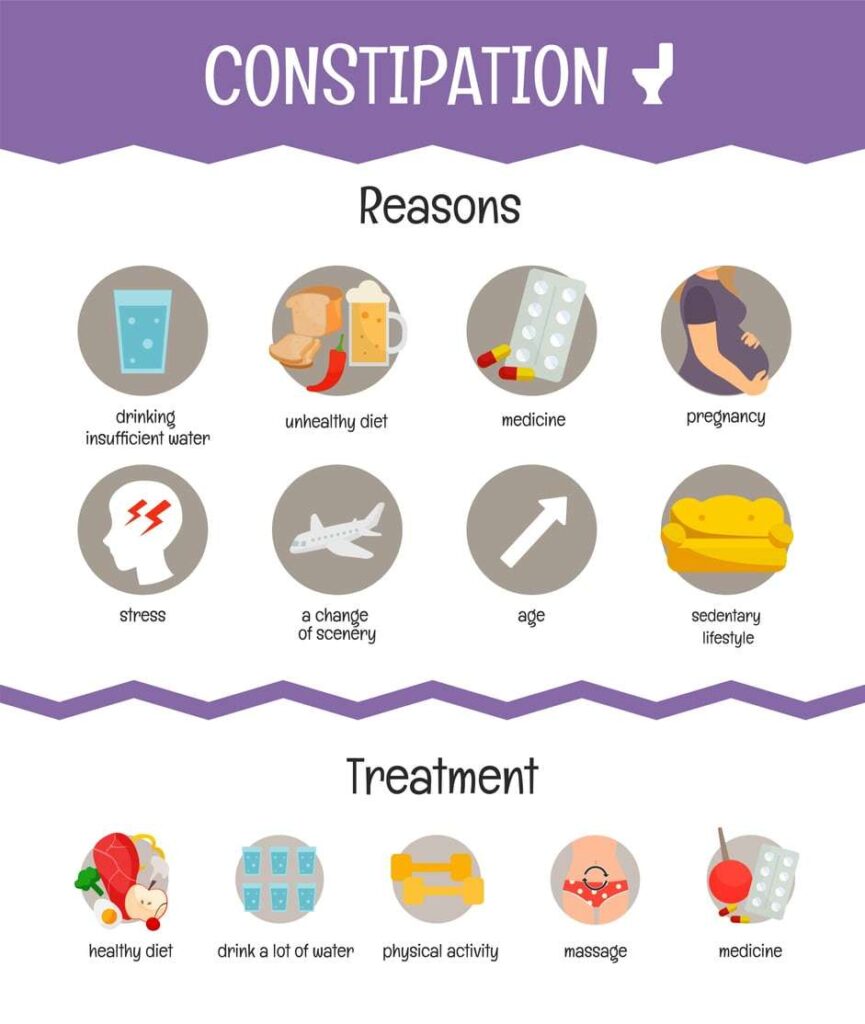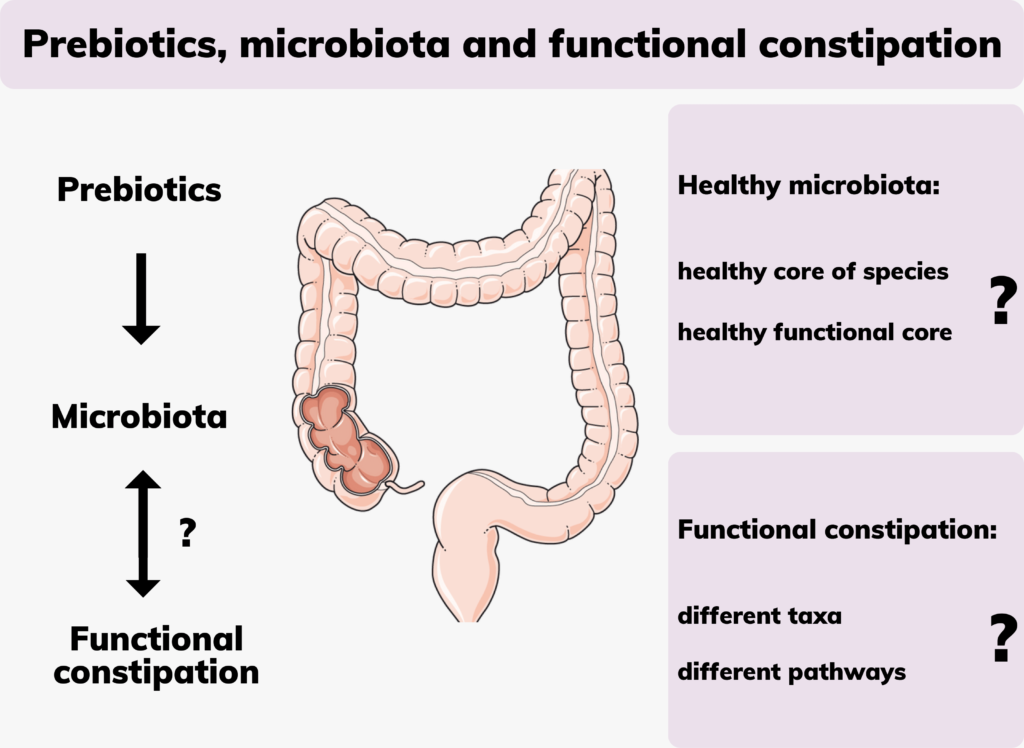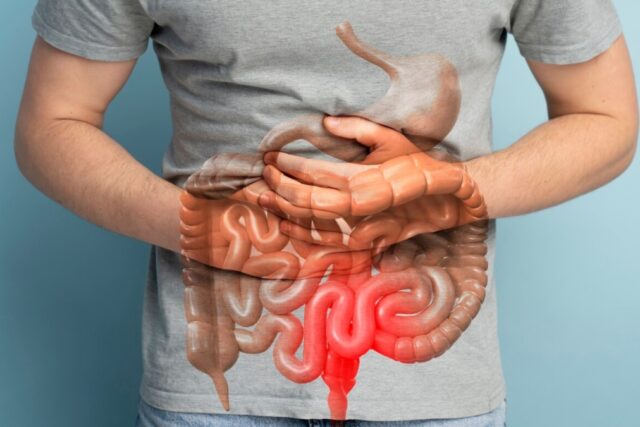Explore effective strategies and insights on combating constipation for a healthier gut. Learn from expert advice and real-life success stories in our comprehensive guide on “Gut Check: Winning Strategies Against Constipation”.
Introduction to Gut Health
Understanding the crucial role of gut health is the first step towards managing constipation effectively. A healthy gut contributes to overall well-being, influencing everything from mood to immune function. Constipation, a common gastrointestinal issue, can significantly impact quality of life. By examining its causes, symptoms, and effects on daily activities, this section will lay the foundation for the comprehensive strategies outlined in this guide.
The Science of Constipation
Causes of Constipation
Several factors contribute to constipation, ranging from dietary habits to underlying health conditions. A low-fiber diet, insufficient water intake, and a lack of physical activity are among the primary lifestyle-related causes. Fiber is crucial because it adds bulk to the stool and helps it pass more quickly and easily through the intestines. Without adequate fiber, stool can become hard and difficult to pass.
Medications, such as opioids, certain antacids, and iron supplements, can also lead to constipation. Additionally, conditions like irritable bowel syndrome (IBS), thyroid disorders, and diabetes can affect bowel movement regularity. Psychological factors, such as stress and depression, can further exacerbate constipation by impacting the body’s physiological processes.
How the Digestive System Works
To grasp why constipation occurs, it’s important to understand the digestive process. Food travels from the stomach to the small intestine, where nutrients are absorbed. The remaining waste moves into the colon (large intestine), where water is absorbed, and the waste is transformed into stool. Muscle contractions in the colon then push the stool towards the rectum, where it is eventually expelled from the body.
When disruptions occur in this process—due to inadequate fiber or fluid intake, lack of exercise, medication side effects, or health conditions—the movement of stool through the colon slows down. This slowdown allows for excessive water absorption, resulting in hard, dry stool that is difficult to pass.
Addressing Constipation
Understanding the science of constipation is the first step towards finding effective remedies and making lifestyle adjustments to alleviate the condition. Increasing dietary fiber, ensuring proper hydration, and incorporating regular physical activity can significantly improve bowel function. For individuals whose constipation is linked to medication or underlying health issues, consulting a healthcare provider for tailored advice is crucial.

Gut Check: Winning Strategies Against Constipation
Diet Adjustments for Better Digestive Health
One of the most effective ways to combat constipation is through dietary adjustments. Incorporating a high-fiber diet is paramount, as fiber helps to soften stool and promotes its easier passage through the digestive tract. Adults should aim for 20 to 35 grams of fiber daily, which can be found in fruits, vegetables, whole grains, and legumes.
- Fruits and Vegetables: Rich in both soluble and insoluble fiber, fruits like pears, apples, oranges, and berries, as well as vegetables like broccoli, carrots, and leafy greens, should be staples in your diet.
- Whole Grains: Replace refined grains with whole grains such as oatmeal, quinoa, whole wheat bread, and brown rice to increase your fiber intake.
- Legumes: Beans, lentils, and chickpeas are excellent sources of fiber and can be included in various meals.
Hydration’s Role in Alleviating Constipation
Adequate hydration is crucial in the fight against constipation. Fluids help keep the digestive system flowing smoothly and prevent stool from becoming hard and difficult to pass. Aim for at least 8-10 glasses of water daily, and consider incorporating other fluids like herbal teas, which can also have a mild laxative effect.
Importance of Fiber
Fiber is the cornerstone of a constipation-preventing diet. There are two types of fiber: soluble and insoluble. Soluble fiber absorbs water and forms a gel-like substance, helping to soften stool. Insoluble fiber adds bulk to stool and aids in its passage through the digestive system. Including a variety of fiber sources in your diet is the best approach to maximize its benefits.
Regular Physical Activity
Regular exercise is another crucial component of a constipation prevention strategy. Physical activity helps stimulate intestinal contractions, making it easier for stool to move through the colon. Aim for at least 30 minutes of moderate exercise most days of the week, whether it’s walking, cycling, swimming, or yoga.
Mindful Eating Habits
Eating regular, balanced meals can also help prevent constipation. Skipping meals or irregular eating patterns can disrupt digestive regularity. Pay attention to your body’s hunger cues and try to eat at consistent times each day to maintain a steady digestive rhythm.
Managing Stress
Stress can have a significant impact on digestive health, including increasing the risk of constipation. Implementing stress-reduction techniques such as meditation, deep breathing exercises, or gentle yoga can help maintain a healthy digestive system.
When to Consider Over-the-Counter Solutions
For those times when dietary and lifestyle changes aren’t enough, over-the-counter remedies like fiber supplements, stool softeners, or mild laxatives may be helpful. However, these should be used sparingly and under the guidance of a healthcare professional to avoid dependency or other issues.
Lifestyle Modifications for Better Digestion
Incorporate Regular Exercise
Regular physical activity is crucial for maintaining a healthy digestive system. Exercise helps food move through your digestive system more easily, potentially reducing the risk of constipation. Aim for at least 150 minutes of moderate aerobic activity, such as brisk walking, cycling, or swimming, each week, along with strength training exercises on two or more days a week.
Stay Hydrated
Drinking enough fluids, especially water, is essential for good digestion. Fluids help dissolve fats and soluble fiber, allowing these substances to pass through your intestines more easily. Aim to drink at least 8 glasses of water a day, and consider adding lemon to warm water in the morning to stimulate your digestive system.
Manage Stress
Stress can significantly affect your digestive system, often leading to constipation. Techniques such as yoga, meditation, deep-breathing exercises, or even short, regular walks can help manage stress levels. Find activities that relax you and make them a part of your daily routine.
Eat Mindfully
How you eat can be just as important as what you eat. Eating too quickly can cause you to swallow air, leading to bloating and gas. Take your time to eat slowly, chew your food thoroughly, and enjoy each bite. This not only improves digestion but can also help you feel more satisfied with your meals.
Establish a Routine
Your body thrives on routine, including your digestive system. Try to eat your meals and snacks around the same times each day to help regulate your body’s digestive processes. This can help ensure more regular bowel movements and reduce the risk of constipation.
Limit Intake of Irritants
Certain substances can irritate the digestive system, leading to discomfort and constipation. Limit your intake of caffeine, alcohol, and artificial sweeteners, which can disrupt digestive processes and contribute to dehydration. If you notice certain foods trigger digestive issues, consider reducing them or seeking alternatives.
Consider Probiotics
Probiotics are live bacteria and yeasts that are good for your digestive system. They can be found in supplements and fermented foods like yogurt, kefir, sauerkraut, and kombucha. Probiotics can help balance the gut microbiota and are linked to improved digestion and a reduced risk of constipation.
Prioritize Sleep
A lack of sleep can negatively affect your digestive system, leading to issues like constipation. Ensure you’re getting 7-9 hours of quality sleep per night to help maintain digestive health. Establishing a regular sleep schedule and creating a restful environment can enhance sleep quality.
Avoid Sedentary Behavior
Prolonged periods of inactivity can slow down the digestive process, contributing to constipation. If you have a desk job or tend to sit for long periods, take regular breaks to stand up, stretch, and walk around. Even a few minutes of movement can make a difference.
Home Remedies and Natural Solutions
Increase Fiber Intake
One of the simplest yet most effective ways to combat constipation is to increase your intake of dietary fiber. Fiber helps to bulk up and soften the stool, making it easier to pass. Foods rich in fiber include:
- Fruits such as raspberries, pears, apples (with skin), and bananas.
- Vegetables like broccoli, carrots, and Brussels sprouts.
- Legumes, including beans, lentils, and chickpeas.
- Whole grains such as oats, brown rice, and whole wheat bread.
Incorporating a variety of these foods into your diet can significantly improve bowel regularity.

Stay Hydrated
Dehydration can make constipation worse. Drinking sufficient water throughout the day helps to soften stool and supports the digestive process. Aim for at least 8-10 glasses of water daily, and consider warm liquids in the morning, such as herbal tea or warm lemon water, to stimulate bowel movements.
Herbal Remedies
Certain herbs have been used for centuries to relieve constipation due to their laxative properties. Some effective herbal remedies include:
- Senna: An FDA-approved non-prescription laxative, it’s effective for short-term relief but should not be used long-term without consulting a healthcare provider.
- Psyllium husk: A natural fiber supplement that absorbs water in the intestine, promoting bowel movements.
- Dandelion tea: Known for its gentle laxative effect and ability to stimulate digestion.
Always consult with a healthcare provider before starting any herbal remedy, especially if you have underlying health conditions or are taking medications.
Probiotics
Probiotics are beneficial bacteria that can improve gut health and regularity. Consuming probiotic-rich foods such as yogurt, kefir, sauerkraut, and kombucha or taking a probiotic supplement can help balance the gut flora, potentially easing constipation.
Exercise Regularly
Physical activity increases blood flow to the digestive system and helps to stimulate intestinal muscles, aiding in the movement of stool through the colon. Even light exercise, such as walking or yoga, can be beneficial.
Aloe Vera
Aloe vera is known for its soothing properties and can also act as a natural laxative when taken orally. Drinking aloe vera juice can help soften stool and improve bowel movements. However, it should be used sparingly, as excessive consumption can lead to dehydration and electrolyte imbalances.
Olive Oil or Flaxseed Oil
Consuming a tablespoon of olive oil or flaxseed oil on an empty stomach can help lubricate the intestines, making it easier for stool to pass. These oils can also be incorporated into salads or other dishes.
Prunes and Prune Juice
Prunes and prune juice are well-known natural remedies for constipation due to their high fiber content and the presence of sorbitol, a natural laxative. Eating a few prunes daily or drinking prune juice can stimulate bowel movements.
The Impact of Diet on Constipation
Fiber: The Double-Edged Sword
Fiber is the cornerstone of a diet aimed at preventing constipation. It is divided into two categories: soluble and insoluble fiber, both of which play distinct roles in digestion.
- Soluble Fiber dissolves in water to form a gel-like substance, helping to soften stool and make it easier to pass. Foods rich in soluble fiber include oats, apples, oranges, carrots, and beans.
- Insoluble Fiber adds bulk to the stool and helps it pass more quickly through the stomach and intestines. Sources include whole grains, nuts, potatoes, and green vegetables like cauliflower and green beans.
While increasing fiber intake is beneficial, it’s crucial to do so gradually. A sudden increase in fiber can lead to gas, bloating, and discomfort. Additionally, it’s important to balance fiber intake with adequate hydration; without enough fluids, fiber can become counterproductive, potentially worsening constipation.
Hydration: Essential for Softening Stool
Water plays a critical role in digestion and the prevention of constipation. It helps dissolve soluble fiber and ensures the smooth passage of waste through the digestive tract. Dehydration is a common cause of constipation, as it leads to harder, drier stools that are more difficult to pass. Incorporating hydrating fluids such as water, herbal teas, and clear broths can significantly improve stool consistency.
Foods to Include for Constipation Relief
Certain foods have been identified as particularly beneficial for preventing and relieving constipation, including:
- Prunes and Prune Juice: Known for their natural laxative effect, prunes are rich in fiber and sorbitol, a sugar alcohol that softens stool.
- Kiwi: This fruit contains a mix of soluble and insoluble fiber, promoting bowel regularity.
- Flaxseeds: Rich in both types of fiber, flaxseeds can be added to yogurt, smoothies, or oatmeal to boost fiber intake.
- Pears, Apples, and Oranges: High in water content and fiber, these fruits can help increase stool bulk and prevent dehydration.
Foods to Avoid
Just as some foods can alleviate constipation, others can exacerbate it. Foods that may contribute to constipation include:
- Dairy Products: In some individuals, dairy can cause constipation due to its fat content and the presence of lactose.
- Red Meat: High in fat and often low in fiber, red meat can slow down the digestive process.
- Processed Foods: Foods high in processed grains, sugar, and fat but low in fiber can contribute to constipation.
- Alcohol and Caffeine: Both can lead to dehydration, worsening constipation.
Meal Planning for Gut Health
Creating a meal plan that emphasizes high-fiber foods, healthy hydration, and minimal processed foods can significantly impact your digestive health. Incorporating a variety of fruits, vegetables, whole grains, and healthy fats into your diet ensures a balanced approach to preventing constipation. Remember, individual responses to foods vary, so it’s important to listen to your body and adjust your diet accordingly.

Preventive Measures to Avoid Constipation
Increase Dietary Fiber Intake
- Aim for Variety: Incorporate a wide range of high-fiber foods into your diet, including fruits, vegetables, legumes, and whole grains. Fiber helps increase the weight and size of your stool and softens it, making it easier to pass.
- Gradual Increase: If you’re not used to a high-fiber diet, increase your fiber intake gradually to avoid bloating and gas.
Stay Hydrated
- Water is Key: Drink plenty of water throughout the day. Hydration is crucial for softening stool and promoting smooth bowel movements.
- Limit Dehydrating Beverages: Reduce intake of caffeine and alcohol, as they can lead to dehydration and worsen constipation.
Regular Physical Activity
- Stay Active: Engage in regular exercise to stimulate bowel function. Even a daily 30-minute walk can significantly impact your digestive health.
- Consistency Matters: Make physical activity a consistent part of your routine to ensure ongoing benefits for your digestive system.
Establish a Routine
- Heed Nature’s Call: Don’t ignore the urge to have a bowel movement. Holding in stool can result in harder, more difficult-to-pass stool over time.
- Routine Helps: Try to establish a regular time each day for bowel movements, such as after a meal, to help train your body to have regular bowel movements.
Mindful Eating
- Eat Slowly: Take your time to chew your food thoroughly. This not only aids in digestion but can also help you manage portion sizes and improve nutrient absorption.
- Monitor Your Meals: Pay attention to how different foods affect your digestion and adjust your diet accordingly to maintain regularity.
Manage Stress
- Stress Reduction: Since stress can negatively affect your digestive system, finding ways to manage stress through meditation, yoga, or other relaxation techniques can help prevent constipation.
Consider Probiotics
- Gut Health: Probiotics, found in yogurt and other fermented foods, can help maintain a healthy balance of gut bacteria and improve bowel regularity.
Limit Intake of Constipating Foods
- Be Mindful: Some individuals may find that certain foods, such as dairy, unripe bananas, or processed foods, can exacerbate constipation. Identifying and limiting these foods can help maintain regularity.
Stay Informed
- Knowledge is Power: Stay informed about your digestive health and be proactive in seeking information or medical advice when changes occur.
Gut Check: Success Stories and Personal Experiences
Emma’s Story: A Diet Transformation
Emma struggled with chronic constipation for years, a condition that significantly affected her quality of life. After numerous unsuccessful attempts with over-the-counter remedies, she decided to revamp her diet completely. By increasing her intake of fruits, vegetables, and whole grains, and reducing processed foods, Emma began to see improvements within weeks. She also discovered the importance of hydration, making sure to drink at least eight glasses of water a day. Emma’s commitment to a high-fiber, well-hydrated diet not only alleviated her constipation but also improved her overall energy levels and well-being.
Alex’s Journey: The Role of Exercise
For Alex, a sedentary lifestyle was the main culprit behind his digestive issues. Working long hours at a desk job and minimal physical activity contributed to his frequent bouts of constipation. Inspired by a friend’s transformation, Alex incorporated regular exercise into his routine, starting with short walks and gradually moving on to more vigorous activities like cycling and swimming. The change was not instantaneous, but over time, Alex noticed significant improvements in his bowel movements and a reduction in constipation episodes.
Maria’s Approach: Stress Management
Maria’s constipation seemed to worsen during periods of high stress. With a demanding job and a busy family life, finding ways to manage stress became essential for her digestive health. Maria explored various stress-reduction techniques, including yoga, meditation, and deep-breathing exercises. She found that regular yoga sessions not only helped her manage stress but also improved her digestive function, thanks to the physical movements that stimulate the intestines.
John’s Solution: Probiotics and Hydration
After reading about the benefits of probiotics for gut health, John decided to give them a try. He added a probiotic supplement to his daily routine, along with increasing his water intake. John also made a conscious effort to eat more fiber-rich foods, although he admits this was the hardest part of his journey. The combination of probiotics, hydration, and a fiber-enriched diet worked wonders for John, helping him overcome chronic constipation and improving his overall digestive health.
Linda’s Medical Intervention
When lifestyle and dietary changes weren’t enough, Linda turned to her doctor for help. After ruling out underlying conditions, her doctor recommended a combination of a gentle laxative and a stool softener for short-term relief, alongside continuing her efforts with diet and exercise. This medical intervention, coupled with her ongoing commitment to a healthier lifestyle, provided Linda with the relief she needed.
Conclusion: Embracing a Constipation-Free Lifestyle
Summarizing the key points covered in this guide, the conclusion will encourage readers to continue their efforts in managing constipation. By embracing the strategies and advice shared, achieving a constipation-free lifestyle is within reach.


MOST COMMENTED
Animal-Based Proteins / Casein Protein / Dietary Protein / High-Protein Diets / Pea Protein / Plant-Based Proteins / Protein / Protein Deficiency / Protein Supplements / Proteins / Whey Protein / Whey Proteins
Is Protein Powder Safe for Teenagers and Children?
Animal-Based Proteins / Casein Protein / Dietary Protein / High-Protein Diets / Pea Protein / Plant-Based Proteins / Protein / Protein Deficiency / Protein Supplements / Proteins / Whey Protein / Whey Proteins
Unlock the Power of Proteins for Optimal Gut Health
Animal-Based Proteins / Casein Protein / Dietary Protein / High-Protein Diets / Pea Protein / Plant-Based Proteins / Protein / Protein Deficiency / Protein Supplements / Proteins / Whey Protein / Whey Proteins
Pea Proteins: The Best Plant-Based Protein Alternative?
Multivitamin
Total Health: Multivitamin for Active Lifestyles
Multivitamin
WellnessFusion: Complete Multivitamin Support
Dietary Supplement
Revitalize Your Health: The Magic of Red Yeast Rice Capsules
Foot care / Foot Health
Revitalize Your Foot Care Routine: Essential Tips for Optimal Foot Health
Foot Problem / Diabetics / Foot Health
Diabetics: Mastering Footwear Selection for Enhanced Foot Health and Ultimate Comfort
Exercises and Footwear Tips for Hammertoe Relief / Foot care / Foot Health / Foot Pain / Foot Problem / Hammertoes
Unlock Effective Exercises and Footwear Tips for Hammertoe Relief
Hammertoes / Foot Health / Foot Pain / Foot Problem
Unlock Relief: Essential Guide to Hammertoes Causes, Symptoms, and Treatments